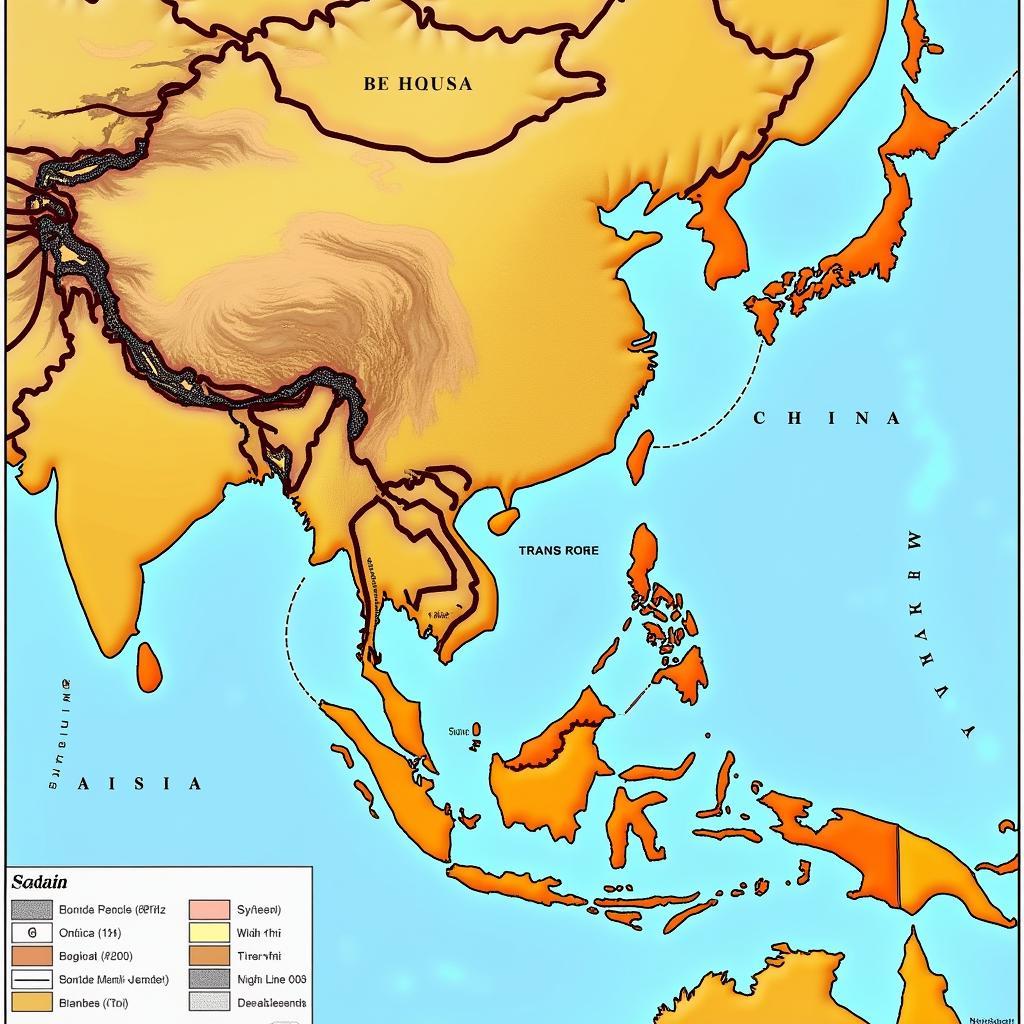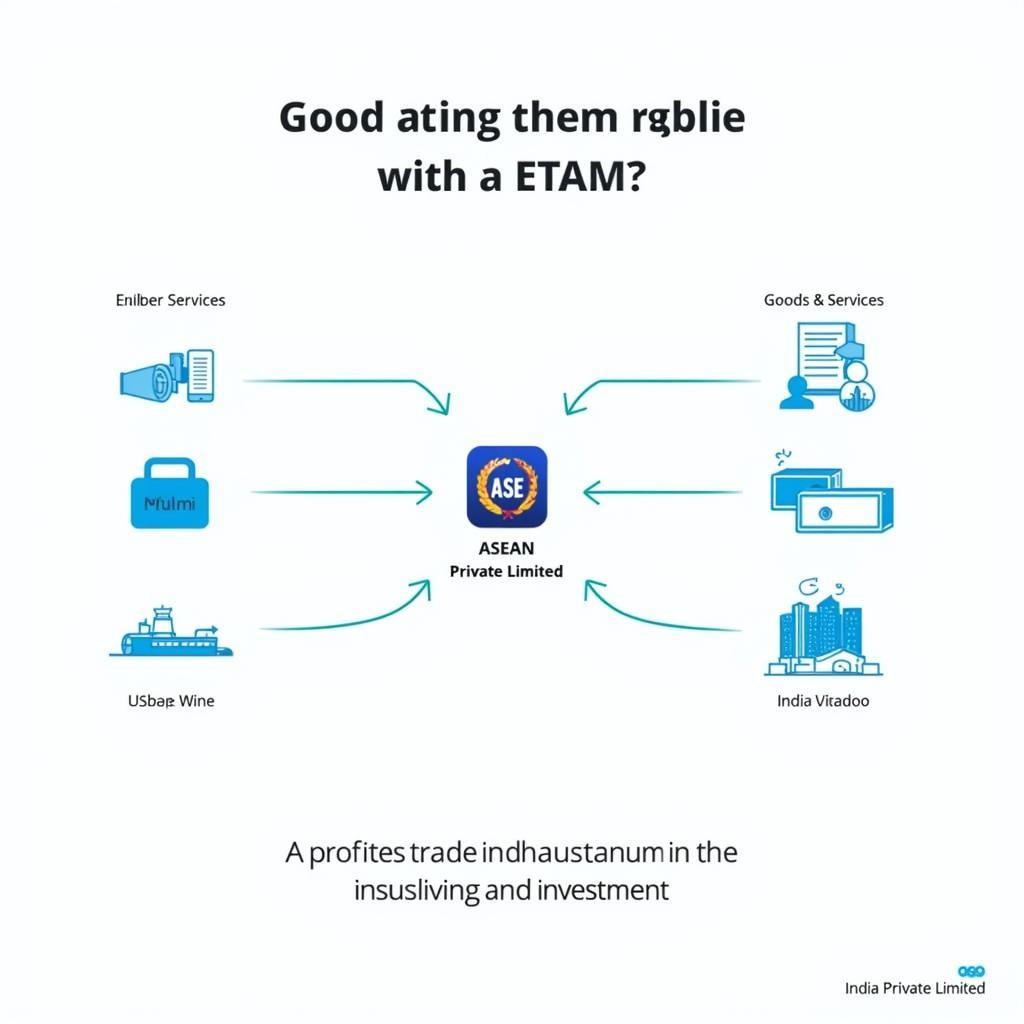ASEAN and China share a long and complex history, marked by both cooperation and conflict. Understanding this intricate relationship in its past, present, and future context is crucial for navigating the geopolitical landscape of Asia. This article delves into the key aspects of this dynamic partnership, exploring its evolution and potential trajectory.
 ASEAN and China Historical Ties
ASEAN and China Historical Ties
A Historical Tapestry: From Ancient Trade to Modern Diplomacy
The relationship between ASEAN and China dates back centuries, with maritime trade and cultural exchange forming the bedrock of early interactions. The Silk Road, extending its reach across land and sea, fostered vibrant trade and cultural diffusion. However, the colonial era brought new complexities, with European powers influencing the dynamics of the region. The post-colonial period saw the emergence of ASEAN, and with it, the development of a more formalized relationship with China. The early years were marked by caution and suspicion, reflecting the Cold War tensions and China’s internal political upheavals.
This evolving dynamic laid the groundwork for the present state of affairs. asean china free trade is a testament to the growing economic interdependence between the two. This agreement has been instrumental in fostering trade and investment, creating opportunities for economic growth within the region.
The Present Landscape: Navigating Cooperation and Competition
Today, ASEAN and China are intertwined in a complex web of cooperation and competition. China’s economic rise has undeniably reshaped the region, becoming a major trading partner and investor for ASEAN nations. This economic interdependence has fueled development and lifted millions out of poverty. However, the South China Sea dispute casts a long shadow, creating tensions and mistrust. Managing this maritime dispute remains a key challenge in the relationship. Furthermore, the growing influence of China in the region has led to concerns about power imbalances and potential coercion.
What does this mean for countries involved in apec and asean countries? The overlapping memberships present both opportunities and challenges. It allows for multi-platform dialogues and collaborations but also necessitates careful negotiation and balancing of interests to ensure regional stability and prosperity.
What is the Future of ASEAN and China Relations?
The future trajectory of the ASEAN-China relationship will be crucial for the stability and prosperity of Asia. Several factors will shape this future, including:
- The evolution of the South China Sea dispute
- The ongoing trade war between China and the United States
- The rise of new technologies and their impact on regional economies
- The changing geopolitical landscape and the emergence of new power centers
Dr. Mei Lan, a prominent Southeast Asian Studies expert, notes: “The future of ASEAN-China relations hinges on finding a balance between economic interdependence and strategic autonomy. ASEAN must navigate this complex relationship with wisdom and unity.” Professor Jian Li, a renowned economist specializing in China-ASEAN trade, adds, “The economic benefits of cooperation are undeniable, but managing the risks and challenges requires a strategic and forward-looking approach.”
The 2030 vision for asean china strategic partnership outlines a framework for future cooperation. However, translating this vision into reality requires sustained effort and mutual trust. Is China a member of ASEAN? While the answer is no, as explained in is china member of asean, its influence is undeniable, highlighting the importance of a well-defined and balanced relationship.
Conclusion: A Shared Destiny?
ASEAN and China face a shared future in a rapidly changing world. Their past interactions, present challenges, and future prospects are inextricably linked. Navigating this complex relationship requires open communication, mutual respect, and a commitment to finding common ground. The future of ASEAN and China will depend on their ability to manage their differences, leverage their strengths, and work together towards a stable and prosperous Asia.
FAQ
- What is the significance of the ASEAN-China Free Trade Area?
- What are the main points of contention in the South China Sea dispute?
- How does China’s Belt and Road Initiative impact ASEAN countries?
- What are the key challenges in managing the ASEAN-China relationship?
- What are the potential benefits of closer cooperation between ASEAN and China?
- How can ASEAN maintain its strategic autonomy in the face of China’s growing influence?
- What are some potential scenarios for the future of ASEAN-China relations?
You can find more information related to this topic by reading our article on ase goch.
When you need assistance, please contact us by phone: 0369020373, email: [email protected] or visit us at: Ngoc Lien Village, Hiep Hoa, Bac Giang, Vietnam. We have a 24/7 customer service team.


